One man’s mission to grow communities in the aftermath of war, by planting the seeds of change with local farmers
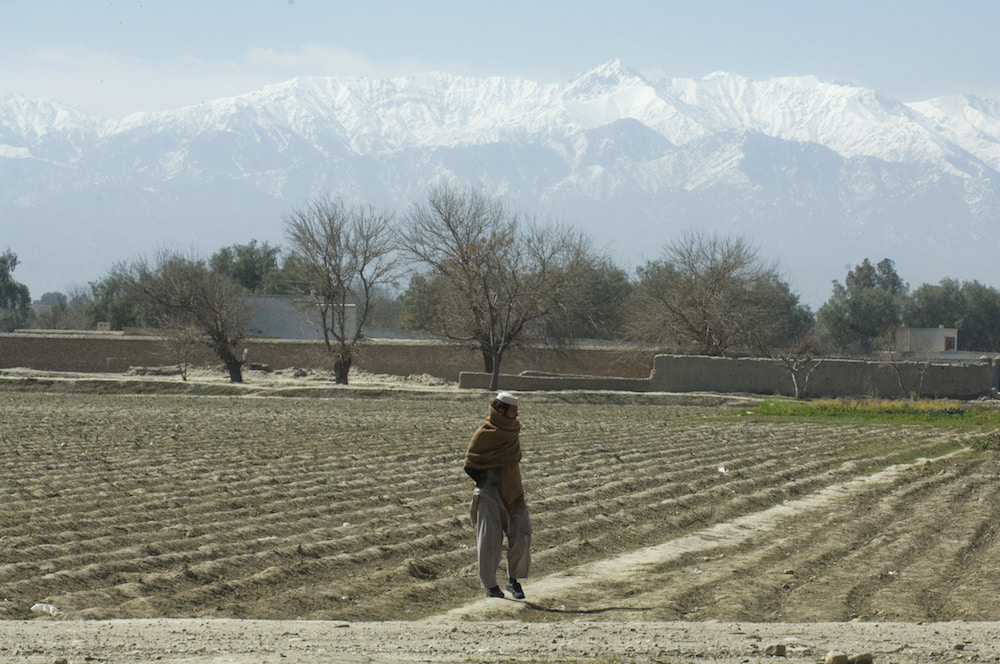
According to Global Research, over 200,000 hectares of opium poppies were cultivated in Afghanistan in 2016. Every kilogram of opium can produce 100 grams of pure heroin. Plant for Peace is transforming that agricultural market by introducing the farmers to growing fruits such as pomegranates instead, and restoring the agricultural industry after it was destroyed by war. In fact, the revenue the farmers are expected to make eclipses that of the opium trade – being three times the amount they would make by growing poppies for heroin.
Plant for Peace’s founder James Brett says, “Drugs have had a profound effect on my life, and drugs were continuing to have a profound effect on the lives of the Afghan people trapped in a cycle that could only be broken by creating alternative livelihoods for their horticulture produce.” Plant for Peace works to create a demand for the fruits through introducing the farmers to the global market by making nutrition bars from the produce.
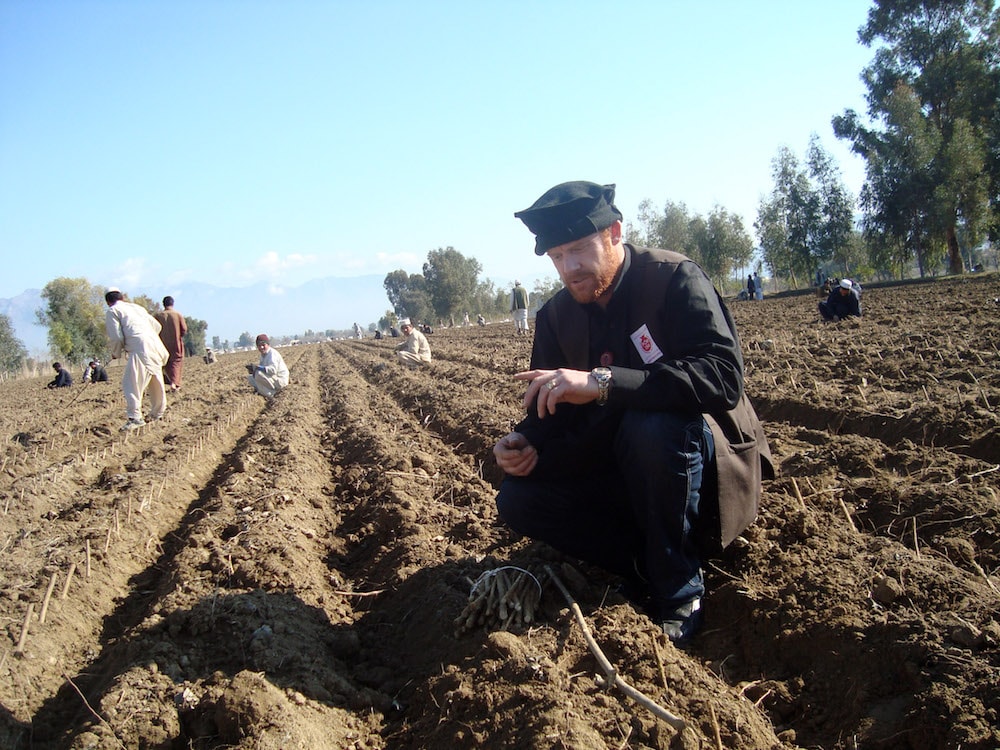
James Brett
James Brett’s inspirational story of helping others and wanting to create a better world, becomes even more remarkable, considering his difficult past. He was sexually abused as a child by his grandfather, and following the tragic early death of his mother when he was just 15, became addicted to drugs. The series of events that followed, saw him end up on the streets, before heading to a young offenders’ institution. Despite all he went through, James was empowered to not only turn his life around, but to help people he’s never met in countries crippled by conflict. Through his own recovery and resilience, he’s created something that will have a lasting and meaningful impact on war-torn regions, and has the support of the local farmers, military leaders, and the entire nation of Afghanistan.
James was empowered to turn his life around by helping people he's never met in countries crippled by war and conflict
Plant for Peace board member HRH Princess Basma bin Ali said, “I have always believed that without hope we have nothing. When James Brett began explaining to me about Plant for Peace, I realised that, here is a courageous man who has turned the notion of hope from an ethereal concept into a living reality.”
With 90% of the world’s heroin made from poppies grown in Afghanistan, Plant for Peace currently focuses their work there, with James singlehandedly persuading 22,000 farmers to grow fruits instead of poppies.
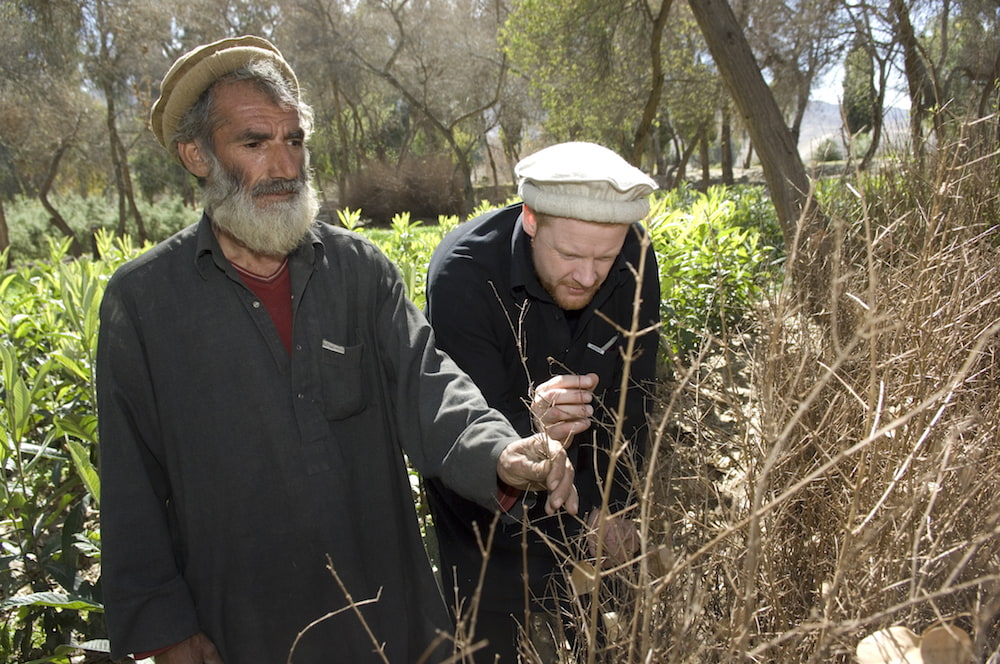
In 2007, Dr Julia Wright from Ryton Organic Gardens in Coventry invited James to do a talk in Kabul, Afghanistan, for the farmers. James saw the vast fields of opium, and the harsh living conditions of the people there. “Survival was tough here,” he notes. “This resonated with me. I had also tasted the toughness of life and I felt a compassion for these people.”
The knowledge that some of the best pomegranates and other horticulture in the world were being grown in Central Asia, and could be grown here too if the farmers were simply connected to the international food industry, led James to realise he could help.
During his visit, James met opium farmers holding a banner with the words “Pomegranates are the answer”. One of the farmers agreed to grow the fruit instead of the poppies, and together they “planted 1.4 million pomegranate trees with lots of other farmers, and eventually put together a National Agrarian Horticulture strategy for Afghanistan”.
“The pomegranate is revered in Afghanistan, and this enabled Plant for Peace to hold seven Elder gatherings addressing over 55,000 Elders, who all supported the notion of converting from opium to high value horticulture crops.” James discovered that the main reason he gained the support of the farming community there when an elder addressed him: “You are the first person to come here without a badge, a gun, or a uniform. Thank you so much.”
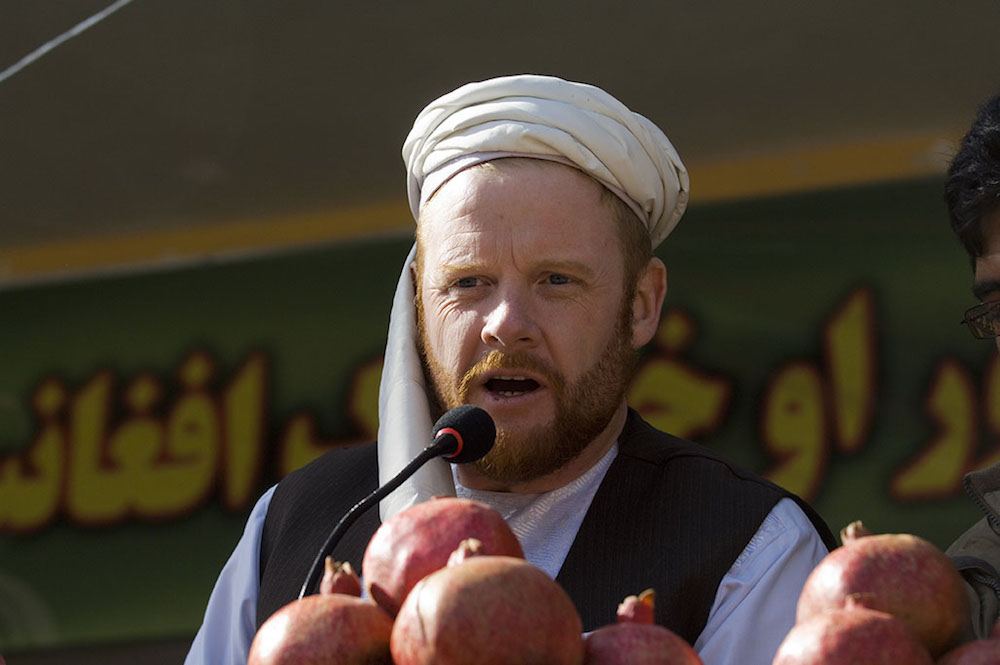
James Brett
From those initial seeds being sown, Plant for Peace now creates food products from the fruits grown and launching them in retailers. James’ believes the ability to contribute is what drives a country and its people to greatness. “This is how the pomegranate is assisting the war on opium. It is helping the people to feel whole again, something I feel as Plant for Peace delivers its message.”
The fruits grown create 100% natural superfood bars. The ingredients are packed with antioxidants, minerals and vitamins, and the bars are suitable for vegans and vegetarians. Additionally, for every bar sold, they plant a fruit tree in Afghanistan. In fact, the new fruit trees to be planted are predicted to contribute $1.3 billion to the Afghan farming industry by 2025.
James remarks that “These bars are more than just a healthy snack. [They] are proof that putting aside politics, anything is possible. With every purchase of the bar, we will plant a tree with the goal to plant approximately 2.65 million this year.”
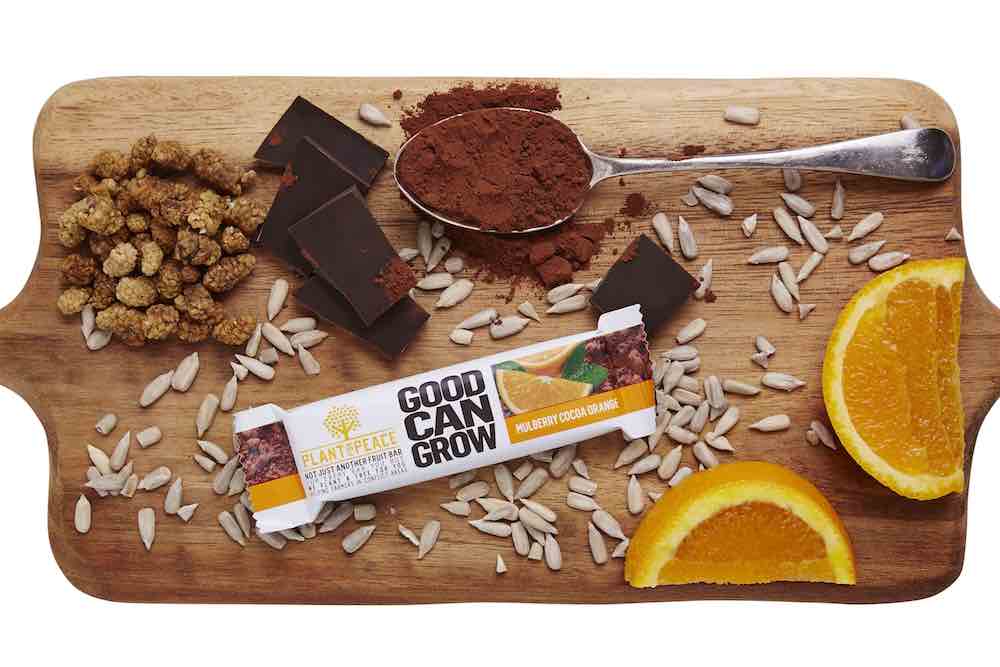
A mulberry cocoa orange Plant for Peace bar
With the Plant for Peace bars now available in shops, you can support them through buying a snack. James explains that purchasing the Plant for Peace products:
**1.**Creates demand for the farmers' produce – a market
**2.**Creates economic sustainability for the farmers – an income
**3.**Buying a £3 multipack – a tree is planted and donated to a farmer in Afghanistan. This generates $700 of fruit throughout a tree's lifespan for the farmer
**4.**Opium can't be grown in orchards
**5.**Tree-planting creates carbon offset
Alternatively, you can donate directly to the Plant for Peace Foundation and help them spread the word about Plant for Peace across social media.
James has big plans for the future. His vision? “To create the largest social-impact, carbon-offset, smallholder farmer supply chain network globally, by duplicating the Plant for Peace model in countries of conflict around the world.”
When reflecting on all he’s achieved so far, James says, “I am more grateful than proud. The experiences I’ve had in my life are what has enabled Plant for Peace, so I’m grateful that my life has brought me to do this.” The way people have come together to support his vision and create a better world is incredibly inspiring. “Wherever I go, people unite to help Plant for Peace achieve its goals, regardless of culture, religion or race.” We think that’s an incredibly positive outlook for what our future world could be.
Head to plantforpeace.org to find out more, or head to your local Sainsbury’s, Waitrose or Holland & Barrett to get a box of four Plant for Peace bars for £2.99.

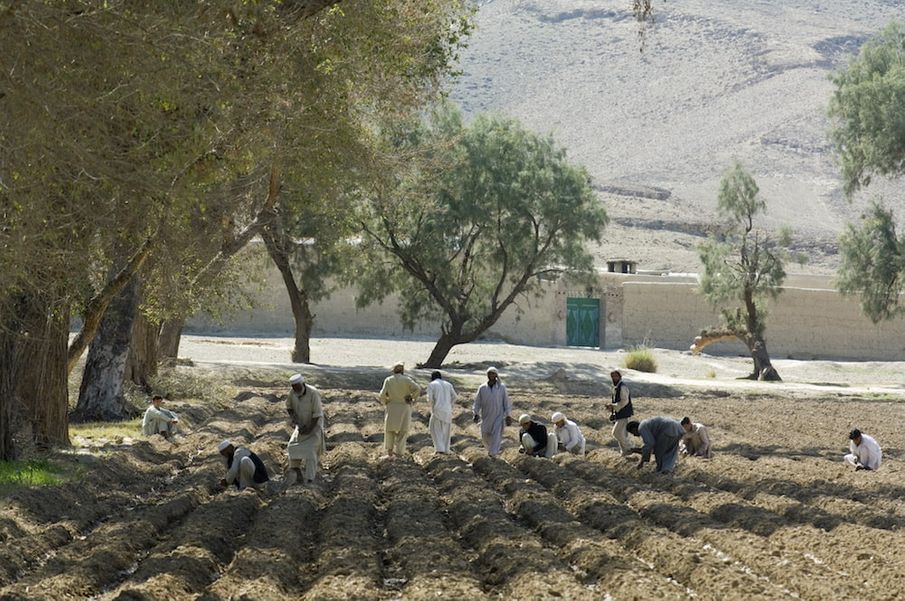
Comments